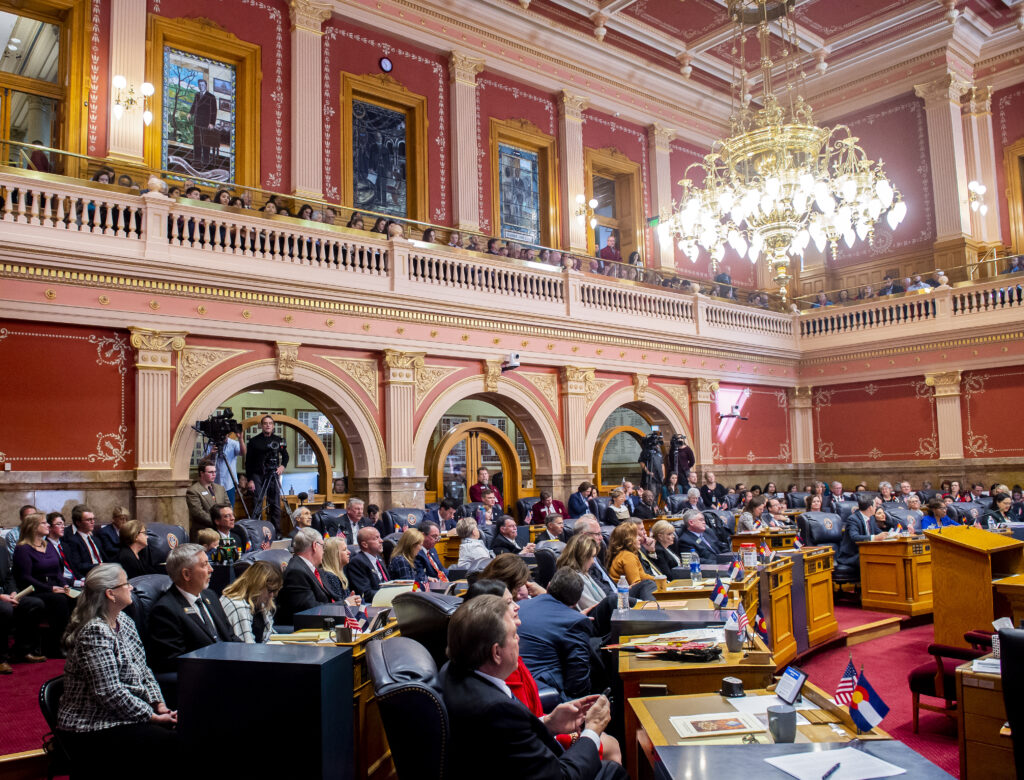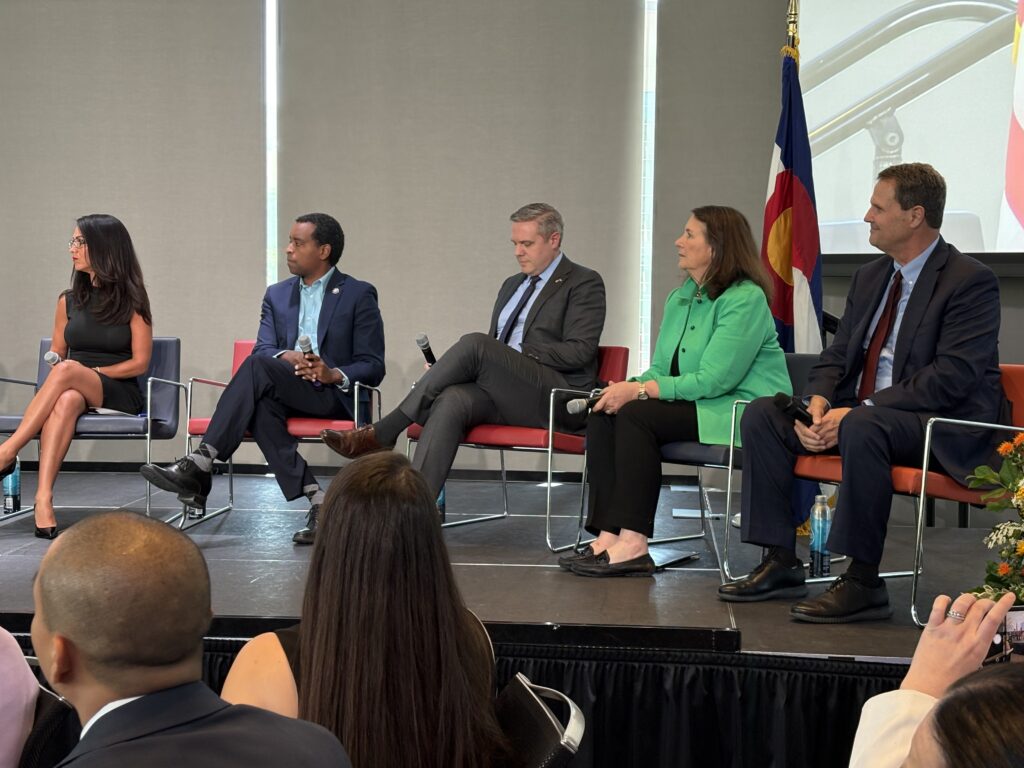Aurora council prepares to opt out of Colorado law banning firearms in government buildings
RklMRSBQSE9UTzogQXVyb3JhIENpdHkgQ291bmNpbG1lbWJlcnMgQ3VydGlzIEdhcmRuZXIsIERhbmllbGxlIEp1cmluc2t5IGFuZCBEdXN0aW4gWnZvbmVrIGxvb2sgb24gZnJvbSB0aGUgZGlhcyBhdCBhIGNvdW5jaWwgbWVldGluZyBvbiBBcHJpbCA4LCAyMDI0LiBDb3VuY2lsbWVtYmVycyBhcmUgc2NoZWR1bGVkIHRvIGludGVydmlldyBjYW5kaWRhdGVzIGZvciBadm9uZWsncyByZXBsYWNlbWVudCBNb25kYXksIGFmdGVyIGhpcyBPY3RvYmVyIHJlc2lnbmF0aW9uLg==
S3lsYSBQZWFyY2UvRGVudmVyIEdhemV0dGU=
Aurora councilmembers have begun to lay the groundwork to allow the city to opt out of a state law prohibiting firearms in so-called “sensitive spaces,” notably including government buildings.
Enacted this year, the Colorado law bans firearms in polling locations, schools, and government buildings, such as council chambers. The legislation contains a provision allowing local governments to opt out of the law.
If Aurora ultimately opted out of the law, it won’t the first local government to do so. Last May, Douglas County approved a resolution saying the board will permit people with a valid concealed carry permit to bring a concealed handgun into government buildings in unincorporated Douglas County.
The prospect of some local jurisdictions opting out and others embracing the “sensitive spaces” law potentially creates a patchwork of rules that gun owners will have to navigate. Under the new law, a violation is a Class 1 misdemeanor.
The proposed Aurora ordinance, which Councilmember Curtis Gardner introduced, did not encounter any opposition during Monday’s study session and will move forward to a vote at a regular council meeting.
To Gardner, the core issue is local governments’ ability to decide for themselves how to best secure their facilities.
Senate Bill 131, which Gov. Jared Polis signed last May and became effective on July 1, initially sought to prohibit firearms in 19 locations. However, its sponsors amended the bill to limit those locations to just a handful, including polling places, childcare centers, schools, public college and university campuses, and local government offices and courthouses.
It was one of several measures that Democrats pushed in the last legislative session, part of a years-long campaign to ban some weapons or impose more restrictions on gun ownership. This year, lawmakers approved legislation to require more stringent training to obtain a concealed carry permit. Voters will also be asked to approve a new excise tax on firearms.
The “sensitive spaces” law was drafted against the backdrop of landmark U.S. Supreme Court decisions on guns.
In a 6-3 decision in New York State Rifle & Pistol Association v. Bruen, the court in 2022 ruled that the ability to carry a pistol in public is a constitutional right guaranteed by both the Fourteenth and Second Amendments.
While the ruling pertained specifically to concealed weapons, it has been more broadly interpreted to apply to gun regulations nationwide. It also led to legislative proposals prohibiting guns in “sensitive” places.
Notably, New York, California, New Jersey and Hawaii have all approved bills banning firearms in “sensitive places” in the wake of Bruen. The courts have largely upheld these new laws.
Meanwhile, in District of Columbia v. Heller, the U.S. Supreme Court concluded that the district’s ban on registering handguns and its requirement that residents keep weapons “unloaded and dissembled or bound by a trigger lock or similar device” are unconstitutional.
The court also said that the term “militia” in the Second Amendment should not be limited to mean only those serving in the military because to do so would be “to create exactly the type of state-sponsored force against which the Amendment was meant to protect people.”
As enacted, the Colorado law on “sensitive spaces” exempts law enforcement officers, members of U.S. military and Colorado National Guard, security personnel, and individuals with a concealed carry permit and carrying a handgun in an adjacent parking area.
Supporters claimed it would curb gun violence.
“This bill would restrict firearms in locations where emotions can run high or where children are largely present, such as schools, including college campuses, government buildings or polling places on Election Day,” bill sponsor Sen. Sonya Jaquez Lewis, D-Longmont, said in an earlier news release.
Aurora’s proposed ordinance said opting out of the new law would “enhance public safety and the efficient operation of local government.”
Gardner said it’s a “local control issue.”
“I don’t think it’s the purview of the state legislature to decide how we should manage the safety and security of our building, that’s up to us,” he said on Monday night. “It’s not any of their business how we manage our building.”
In other council news, councilmembers heard an update on a multipurpose entertainment venue feasibility study and moved forward with the process of developing a plan to transition the prosecution of domestic violence cases out of the municipal court.
They also approved a resolution directing the city attorney to challenge a state bill prohibiting flat fee contracts for indigent defense, as well as moved forward with an ordinance expanding the hours of operation for retail marijuana stores.











